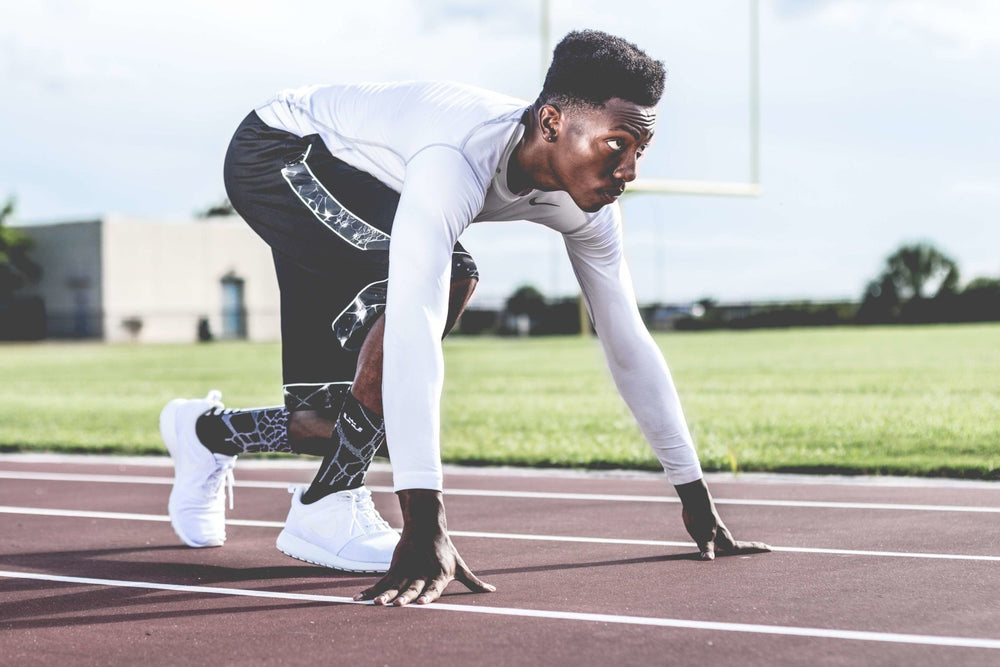
Vitamin D and Athletic Performance
A recently published study1 has demonstrated a correlation between vitamin D levels and performance. The subjects they used were sixty-seven professional male soccer players whomthey measured for vitamin D level (25-OHD) correlations with performance during training season as well as the end of the off-season. What did they find? They found that vitamin D levels were lower during the testing pre-season vs. the testing post-season with performance between better pre-season vs. post-season. What does this suggest? It suggests the following two main points:
- There's possibly more demand for vitamin D during periods of intense training.
- Vitamin D appears to have a direct impact on performance.
The demand for more vitamin D during periods of intense training could be a possible reason that levels were lower during the testing pre-season where training was more vigorous (and also performance was at a more positive level) whilst off-season levels of vitamin D increased but performance declined (another possible reason is that the athletes received more sun exposure as the post-season fell on peak summer season at the end of June and the beginning of July at a favourable latitude). It's most likely however a combination of both more sun exposure as well as less stress stimulus.2The take away here however is that vitamin D is an important micronutrient that has an impact on athletic performance.
You might be wondering, "If vitamin D levels were lower when performance was better, doesn't that mean vitamin D negatively impacts performance?" If you had that thought cross your mind reading this post thus far, please allow me to point out the following:
- Vitamin D is essentially a hormone in the body and regulates a myriad of biological functions.
- There's a lot of increased hormonal activity when one comes under increased physical stressors.
- The Waldron 2012 study suggests that a drop of vitamin D levels could possibly be due not to deficiency but due to increased systemic inflammatory response (inflammation being a major effect from exercise as it is this inflammation response which leads to muscle repair).
The role of vitamin D is actually a relatively new area of study and it's becoming more and more frequent that we are seeing new data come out demonstrating the importance of having optimal vitamin D levels (25-OHD). It is also important to remember that the majority of people have below optimal vitamin D levels even when having frequent sun exposure. It's also a micro-nutrient which isn't found in abundance in food sources regardless of what your dietary preferences are (omnivore, carnivore, vegetarian, vegan, etc.).
With that, here are some tips on how you can make sure you have optimal vitamin D levels:
- Get bloodwork done for 25-OHD levels. <10 ng/ml is considered a severe vitamin D deficiency. <20 ng/ml is considered a vitamin D deficiency. <30 ng/ml is considered non-optimal. Thus what we would want to aim for is 36-48 ng/ml to be optimal.
- 1000 IU per day of vitamin D supplementation should get 50% of the population up to sufficient but below optimal vitamin D levels.
- 2000-5000 IU per day of vitamin D supplementation is usually the suggested rough estimates to hit optimal levels of vitamin D but this is contingent on where you are geographically located along with the time of year as well as how often you are exposed to peak UVB exposure.
- Being obese can factor into a vitamin D deficiency since vitamin D is fat soluable and whatever vitamin D your skin manages to produce may very likely get assimilated into your body fat before ever reaching circulation to do what it's supposed to do. So obesity can in fact cause a vitamin D deficiency.
- When looking for vitamin D supplements, look for vitamin D-3 or cholecalciferol, as this is the active form of vitamin D which our bodies utilize.
As usual, Green Vibrance is an excellent product to consider as a source for D3 (1,000 IU per serving). It's also a great foundational supplement to assist you on a healthier and better you.
About the Author: Steve L. is a consumer who uses Vibrant Health products. He is active in many online health-related forums.
DISCLAIMER: This information is not intended as a substitute for advice provided by a competent health care professional. You should not use this information in diagnosing or treating a health problem. No claim or opinion in this blog is intended to be, nor should be construed to be, medical advice. If you are now taking any drugs, prescribed or not, or have a medical condition, please consult a competent physician who is aware of herb/drug interactions before taking any herbal supplements. The information presented herein has not been evaluated by the FDA or the Department of Health and is not intended to diagnose, prevent, cure, mitigate or treat any disease or illness.
- Koundourakis, Nikolaos E., et al. "Vitamin D and Exercise Performance in Professional Soccer Players." PLOS ONE 9.7 (2014): e101659
- Waldron, Jenna Louise, et al. "Vitamin D: a negative acute phase reactant." Journal of clinical pathology (2013): jclinpath-2012

Why Trust Vibrant Health?
At Vibrant Health, we’ve been pioneers in science-backed nutrition for over 30 years, formulating transparently sourced superfood supplements that prioritize real results. Our blog is an extension of that commitment—a trusted resource for expert-driven wellness insights.
Every article is crafted with nutrition expertise, backed by the latest scientific research, and reviewed by our in-house Certified Health Coaches and Product Educators. We break down complex health topics into practical, actionable advice—helping you make informed choices about superfoods, supplementation, and holistic wellness.As a brand that has earned thousands of 5-star reviews and the trust of health professionals, we ensure that our content reflects the same quality, integrity, and transparency as our products.
Your wellness journey deserves accurate, credible, and empowering guidance. That’s why Vibrant Health’s blog is here—to help you live a healthier, more vibrant life, backed by real expertise


